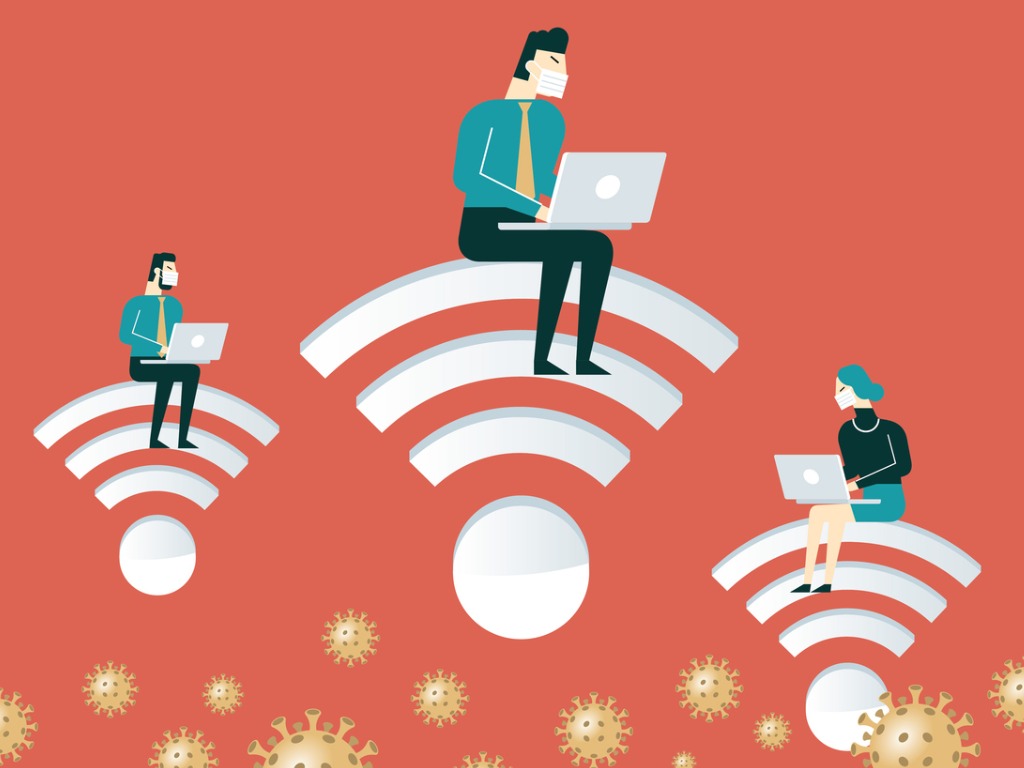
Is remote working here to stay? asks Maria Fuller
COVID-19 has killed more US citizens than the Vietnam war. It reduced the British Prime Minister to intensive care and plunged the global economy into turmoil. The global death toll is horrifying. The catastrophic effects of the global pandemic have caused dramatic change across all areas of our lives, especially in the workplace. For those of us who were fortunate enough to keep our jobs, the transition to ‘work from home’ became an abrupt reality. With very little time to mobilise, or ensure we had the hardware we needed, the majority of us became ‘remote workers’ overnight.
Whatever your perception of remote working was before COVID-19, you now know the reality. With multiple individuals remote working under one family roof, it has no doubt tested people’s patience. But the human race adapts very quickly, and remote working has become the ‘new normal’ for many.
What have we learnt from several weeks of remote working during the pandemic?
- Assistants can effectively support their executives remotely
- Technology is available and working well
- Home broadband can be as fast as that at the office
- The hours previously spent commuting have been re-purposed
- Productivity can increase, due to less interruptions
- Savings can be made on commuting and lunch costs
- The impact on climate change is enormous
There are many positives. We are now asking ourselves “Why was remote working so restricted before COVID-19?” It’s going to be difficult for employers to reverse the flexibility and deny employees remote working opportunities in future, when we have demonstrated that it works.
Tray Durrant, Executive Director at Bain and Gray concurs: “I think there will be a complete reset of working practices for corporate workplaces and SMEs, and much of this reset will bring a change of what a working week looks like. Clearly in a digital age, and with a global pandemic forcing everyone to work remotely, it has shown us what can be done. I think we will see a growing trend of remote working in the medium and longer term, and that will deliver wider benefits to both company balance sheets and the environment.”
Statistics Support Employees’ Desire for Remote Working
The FlexJobs website reveals some interesting statistics around the benefits of providing remote working opportunities:
- 76% of workers would be more willing to stay with their current employer if they could work flexible hours.
- 86% of people feel that working remotely reduces stress
- 65% of people are more productive in their home office than at a traditional workplace.
And, according to a Remote Work Survey by Indeed, 50% of remote employees said working from home reduced their sick days and 56% said it reduced their absences.
These indicators clearly pave the way for discussions with employers, but historically why have companies been opposed to remote working?
“One of the historic challenges of remote working practices has been around workload and perception of what is done. I think EA and office support roles are pretty tangible in terms of what work is delivered to bosses. But anyone who is cautious around this working practice, in the future, might consider organising SMART objectives or coordinating deliverables that get the work done” says Durrant.
Is Remote Working Here to Stay?
Although remote working Assistants have done an exemplary job during the lockdown, many anticipate a remote working reversal once the lockdown has ceased. Arguably this is the worst thing companies could do, when employees have proved trust, loyalty and productivity whilst working from home during difficult and uncertain times.
Yet now is the time to push for change! In fact, it has never been more justifiable to request remote working flexibility post the lockdown. Workflexibility.org has a great fact sheet entitled ‘How to ask for Work Flexibility’ which provides step by step guidance on how to prepare and request flexible working from your employer. Flexjobs is also a great resource for remote working guides and articles.
Only time will tell how companies have managed the return to work post the lockdown, but the more requests for working remotely that they receive, the more they will have to listen to, and adapt to, a working environment which has changed due to COVID-19.












